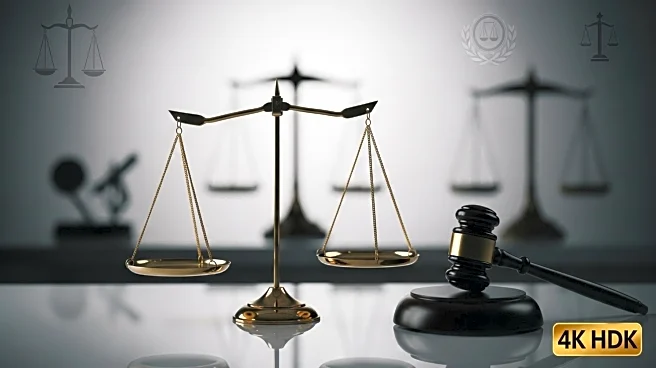What's Happening?
Two U.S. lawyers have filed a case with the International Criminal Court (ICC) against Iranian Supreme Leader Ayatollah Ali Khamenei and Esmail Qaani, a senior commander of the Islamic Revolutionary Guard Corps (IRGC). The case accuses them of war crimes and genocide for their alleged support of Hamas in the events of October 7. The lawyers are seeking arrest warrants and a formal investigation by the ICC into the actions of these Iranian leaders. The accusations stem from Iran's purported backing of Hamas, which is implicated in the October 7 massacre. This legal action highlights the ongoing international scrutiny and legal challenges faced by Iran concerning its foreign policy and military alliances.
Why It's Important?
The filing of this case at the ICC underscores the international legal and diplomatic pressures on Iran, particularly concerning its support for groups like Hamas. If the ICC decides to pursue the case, it could lead to significant geopolitical ramifications, potentially affecting Iran's international relations and its leaders' ability to travel abroad. The case also reflects broader tensions in the Middle East, where Iran's influence and actions are often contested by Western nations. For the U.S., this legal move aligns with its broader strategy of holding state actors accountable for supporting terrorism, which could influence future diplomatic and military engagements in the region.
What's Next?
Should the ICC decide to proceed with the investigation, it could lead to arrest warrants being issued for Khamenei and Qaani, complicating Iran's diplomatic engagements. The Iranian government is likely to respond with strong denials and may seek to rally support from allied nations. The case could also impact ongoing negotiations and diplomatic efforts involving Iran, particularly those related to nuclear agreements and regional security. Observers will be watching closely to see how the ICC responds and what implications this might have for international law and accountability.










